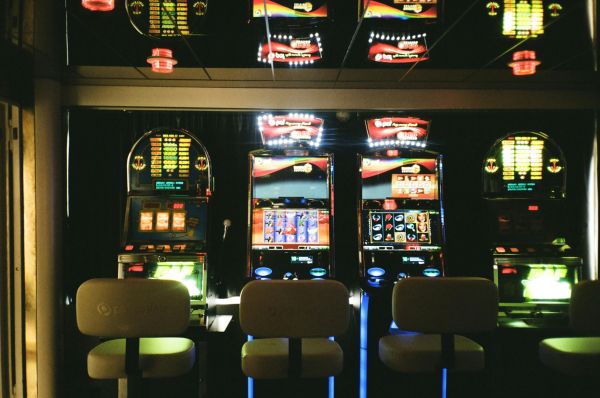The astonishing crossover between slots and retro video games

The iGaming industry is a global powerhouse, increasing its revenue every year through new markets and innovative technologies. Part of this has been down to the popularity of online slots, many of which use licenses from existing popular culture properties. One of the most used are video games and in this article, we discuss the connections between the two.
What is the wildest slot game you have played? Some of the franchises licensed to slots are astounding, from the likeness of country singer Dolly Parton to chat show hosts like Ellen DeGeneres. Yet aside from the celebrities, movies, and sports tie-ins, video games and slots share a common bond. Together, they have been involved in some of the most successful slot titles of all time. Below, we discuss what makes this crossover potential so strong.
What was the first licensed slot game?
Many people do not realize that one of the first licensed slot games was a videogame tie-in. Created by veteran developers Microgaming, it used the Tomb Raider franchise created by Eidos Interactive. This game enjoyed huge success in the nineties, revolutionizing what an adventure game could be. It also introduced one of the first female videogame action heroines in the form of Lara Croft.
The deal to use the property was signed in 2004 and the first game was released for use on mobile in 2006. What made it so ingenious was that by 2007, anticipating the co-op path gaming was taking, it was configured so that it could be played in a tournament environment. It was so successful that by 2008 a sequel was released.
With its treasure hunter backdrop and visuals, it was a sure fire way to get people into the developing market of online slots. In many ways, future games would emulate the main theme that linked the two. That is risk and reward.
Retro games could not rely on an open sandbox world, multiple character arcs, or realistic graphics. Instead, many of these games had to blend risk with reward, much like you find in online slots. Think of the risk involved in gunning for the last cherry on Pac-Man, or making that risky jump as the timer clicks down in Frogger. This has been the tie that binds them both so well.
Retro video games used as slot titles
Tomb Raider may have been the first game to be used as a slot title, but it was not the last. A host of games have made this leap. NetEnt, one of the world's leading developers, has been known to gun for licenses to some of the most recognizable videogames of all time, and get them. It has created a slot game based on Street Fighter II: The World Warrior, harking back to the 16-bit era of pixels on the Genesis and SNES. What game encapsulates risk and reward more than this competitive fighter?
One of the first video games ever, Space Invaders, also got its slot title. The graphics for this game and its design have seeped into popular culture, with the pixelated craft and aliens becoming a fix for street artists everywhere. The bonus round for this even allowed a skill-based game, where you played Space Invaders itself to win money. This concept would be taken even further with casino games such as Space Invasion, essentially Space Invaders with cash prizes.
Is gambling for money the great divide?
There is one area in which slot titles deliver that standard gaming is not currently able to do. That is the ability to reward people with cash prizes.
There are plenty of casino games available on consoles, and there always have been. Yet they lacked the real pull that modern casino games have, which is to win money. Even in today's digital age, online casino gaming and console gaming are well divided. You can't win money on Four King Casino and Slots, for example, despite it being the best-selling game on PlayStation.
Several reasons for this exist. Firstly, legislation keeps iGaming companies away from marketing to minors. By entering into this field, it could be seen as a method of encouraging gambling in younger age groups. However, the gaming industry has followed a similar path with loot boxes and crates and is currently facing criticism for these elements within them.
Another element is that the iGaming industry could be much better off if they avoid console markets. They have a billion-dollar industry and while allowing games to be played on consoles may bring more revenue, it could also bring less. Once major companies like Sony and Microsoft begin getting huge revenue from them, it is less of the pot for existing companies. They would also be able to gatekeep the content on their stores, pushing certain titles and holding back others. Thus, it could also damage the industry for developers.
Gaming will always be a unique form of entertainment, due to its interactive nature. Be it playing slots or plugging into a retro videogame, the blend of skill and luck is what unites them. Yet winning real money will always be a draw and as the boundaries between gaming and console gaming grow stronger, it can't be long before we see even more crossovers of this nature.